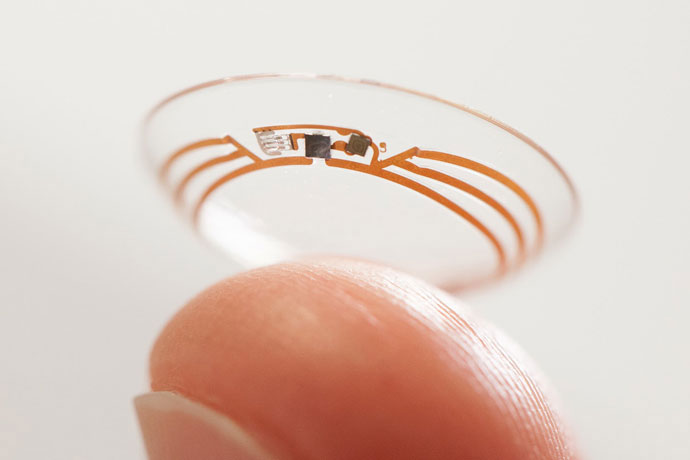Google’s Smart Contact Lens On The Way: 5 Things You Need To Know
Google is ready to sell its first smart contact lenses according to an announcement from the company and its partner Novartis. The smart contact lens follows the less than spectacular release of the company’s wearable computer Google Glass. Unfortunately the contact lens isn’t an eye-mounted version of Glass; it’s a completely different technology. Here’s what you need to know before the gadget hits the market.
What’s A Smart Contact Lens?
The device that Google is marketing is actually just a sensor with a wireless transmitter. It’s designed to help people with diabetes by monitoring their blood sugar levels. Swiss pharmaceuticals device company Novartis is going to take charge of some aspects of production and marketing according to this morning’s release.
How Will This Help Diabetes?
The contact lens will monitor a patients blood sugar and alert them if it senses anything wrong. The device will be able to transmit that alert wirelessly; meaning that patients will not have to have a head mounted computer, or anything else that would make the device unusable outside of a hospital setting. The data can be sent to a mobile device, like a smart phone, allowing easier care for diabetes.
What’s The Future Of The Google Contact Lens?
The smart contact lens is able to measure diabetes for the time being, but there are many other applications that miniaturized electronics in the eye could achieve. Novartis is hoping that is could be used to augment and correct vision with a dynamic contact lens suiting more purposes than today’s static examples. A fully fledged computer interface is the dream, but that’s probably a long way off.
When Will This Be On The Shelf?
There’s no telling when this device will actually hit the market, as the two companies are still developing its abilities. There are many hurdles that a device like this will have to cross before it will be allowed to be used in medical situations, but the deal between Google and Novartis is a big step in the right direction, matching Google innovation with Novartis expertise. Optimistic predictions put the release of the device in 2016, but this project could go on for years.
Why Is Google Doing This?
Google probably doesn’t want to advertise insulin to you if your blood sugar is out of control, so why is the company trying to sell a diabetes monitor? The answer lies in an often repeated but little understood phrase: “The Internet of Things.” Google is heavily involved in technologies related to that idea, and the place to start may be healthcare.
The “Internet of Things” describes a world in which we are surrounded by sensors of different types collecting information which transmit and receive it wirelessly. A smart contact lens could update a doctor, or a diabetes sufferer themselves if blood sugar is going in the wrong direction.










































